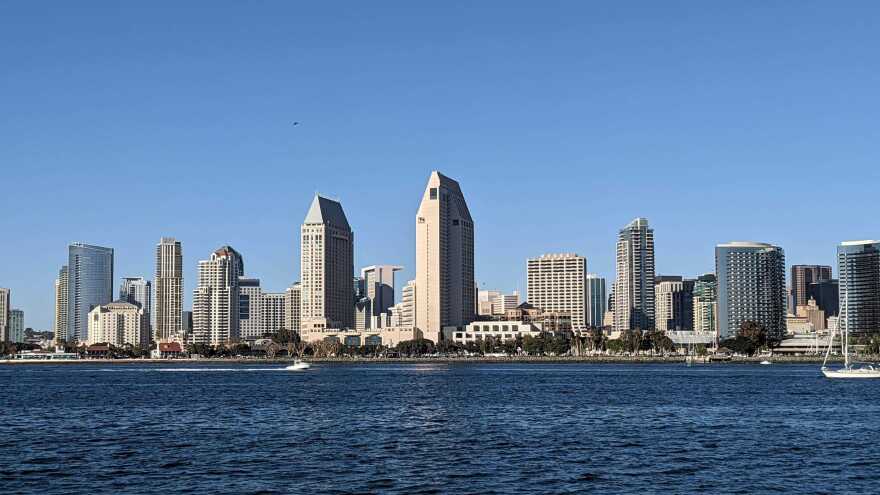Mayor Todd Gloria announced Monday seven proposed affordable housing projects have been recommended for funding under a new program called "Bridge to Home" aimed at creating more low-income units throughout the city.
"This is another effort to ensure the city is doing all it can to foster the creation of housing that is affordable to low-income San Diegans," he said. "The Bridge to Home program will help provide the gap financing needed to make these housing projects a reality and create hundreds of homes for families and individuals who can't afford market-rate housing — including many who are currently experiencing homelessness."
Bridge to Home aligns with Gloria's "Homes For All of Us" initiative, his effort to create more affordable housing throughout the city. The initiative features multiple Housing Action Packages with programs intended to make it easier to build housing for low- and middle-income residents. The City Council passed the first Housing Action Package in February.
Under Bridge to Home, nearly $32 million in loan funding is being made available to affordable housing developers, administered by the city's Economic Development Department, according to a city statement. The program draws its funding from the city's Low and Moderate Income Housing Asset Fund, the federal Community Development Block Grant program and the state's Permanent Local Housing Allocation program — created through Senate Bill 2, authored by Senate President pro Tem Toni G. Atkins in 2017.
RELATED: County supervisors approve turning 3 properties into affordable housing
"Californians are in desperate need of more housing solutions, especially housing that is affordable," Atkins said. "The city of San Diego's new funding program will do just that, and is the kind of practical solution that will help to bring more units to fruition.
"This program will not only build homes, but help build a more equitable approach to achieving the California dream," she said.
The seven projects selected for funding are planned to create 662 homes, including 193 that come with supportive services for people experiencing homelessness. All seven are within a half-mile of an existing or planned major transit stop.
They are:
— Iris at San Ysidro, 100 homes, including 15 with supportive services;
— Beyer Boulevard Transit Village in San Ysidro, 100 homes;
— Ventana al Sur in San Ysidro, 101 homes, including 25 with supportive services;
— 17th and Commercial in East Village, 107 homes, all with supportive services;
— Cortez Hill Apartments in Downtown, 88 homes, including 14 with supportive services;
— 43rd Street Apartments, 65 homes, including 32 with supportive services; and
— Rancho Bernardo Transit Village, 100 homes.
The Cortez Hill Apartments are scheduled for a City Council hearing next week. The remaining projects are expected to advance through the approval process in April and May.
"San Diegans must have access to homes that don't leave them on the edge of a financial cliff every month," said City Council President Sean Elo- Rivera. "This program is exactly what our city needs to help us address our housing-affordability and homelessness crises. I look forward to creating these affordable homes as quickly as possible."
Three of the seven projects are in District 8, represented by City Councilwoman Vivian Moreno, who is chairwoman of the council's Land Use and Housing Committee.
According to the city, additional funding for the program is expected to be available over the next three years. To be eligible, projects must create homes that are affordable to households earning 80% of area median income or less, and units must be affordable for at least 55 years. A quarter of the money is set aside for smaller and emerging development partners that will each provide 40 units or fewer, to ensure inclusion.






